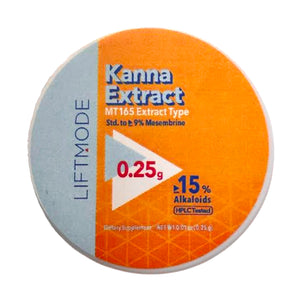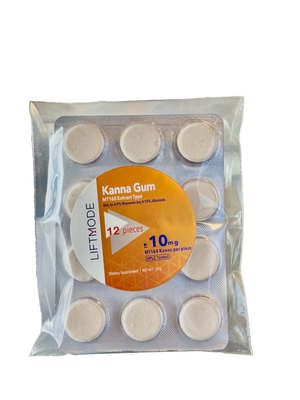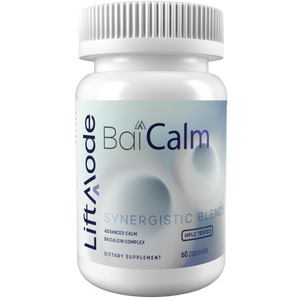Lion’s Mane side effects and interactions are important to know about. The medicinal mushroom (
Hericium erinaceus), also referred to as Yamabushitake, grows on dead broadleaf trees and used for medicinal and culinary purposes in various parts of Asia. It has long been utilized in Traditional Chinese and Japanese medicines to nourish the gut and spleen strengthen the immune system.
Today, Lion’s Mane is one of the most researched dietary supplements due to its powerful nootropic and neuroprotective properties. Lion’s Mane is a well-established adaptogenic herb and is high in bioactive compounds and phytonutrients. But what are the most important Lion's Mane side effects and interactions?
![]()
It is known to improve mood and circulatory health, promote gut function, and enhance cognition. The mushroom is also popular for its calming effects on the central nervous system and immunity.
If you were looking to try Lion’s Mane but are unsure of its benefits and side effects or interactions, then look no further. This article looks into the potential side effects and interactions that people may experience.
Generally, it is a safe and effective nutraceutical with no toxicity. As with any dietary supplement, please consult your doctor before use, especially if you have any underlying conditions.
Lion’s Mane Benefits
-
Improves Brain Function and Mood
Lion’s Mane contains powerful neuroprotective properties. Researchers have suggested Lion’s Mane is great for ameliorating cognitive functions due to its effects on neurite outgrowth. In fact, two important active components of Lion’s Mane, hericenones and erinacines, were shown to reduce inflammation in the brain by mediating cytokine activity.
Furthermore, Lion’s Mane may also offer mood-stabilizing and cognitive boosting effects by increasing the growth of new brain cells. In several studies, polysaccharides isolated from the mushroom were found to enhance the growth of nerve cells and neurites in rats and showed promising results on cognitive abilities, such as better memory and concentration and reduced stress.
[1]
-
Supports Immunity and a Healthy Circulatory System
Another great Lion’s Mane benefit is that it
supports a healthy immune function due to its high anti-inflammatory and antioxidant properties. Studies have found Lion’s Mane potent antioxidant activity helps to neutralize free radicals and protect the body from oxidative stress caused by environmental toxins and poor diet.
By increasing antioxidant status in the body, Lion’s Mane may support liver health, promoting longevity and well-being. Lion’s Mane may also protect the heart by helping to support healthy levels of cholesterol, blood glucose, and triglyceride levels in the blood.
[2]
-
May Support a Healthy Digestion
Researchers have indicated that Lion’s Mane is a powerful natural supplement to help support your digestion. As a powerful anti-inflammatory agent, Lion’s Mane may support a stronger digestive system.
Studies out of Malaysia and China noted that the polysaccharides in Lion’s Mane contribute to its gut-enhancing benefits. These active compounds were shown in animal models to protect the stomach and digestive tract from pathogenic bacteria such as H. pylori, which may be linked to certain gastrointestinal conditions.
[3]
![]()
How to take Lion’s Mane supplements
Lion’s Mane is available in many forms. While it is most commonly dried and turned into a dietary supplement, it is also consumed in its whole food form. Our Liftmode Lion’s Mane is sold as a dietary supplement.
Currently, there isn’t a globally recommended serving size for Lion’s Mane. This is because dosages vary depending on the purpose of use. LiftMode recommends 1000 - 2000 mg taken once to twice daily.
- To increase Neural Growth Factor (NGF) production, studies have shown 3-5g per day to be safe and effective.
- For enhanced cognitive functions such as improved memory and concentration, subjects received 250 mg of dried Lion’s Mane powder three times per day for 4 months and saw great improvement. [4]
- Those looking to reduce stress and irritability found 2.0g per day of Lion’s Mane to be safe and effective during a period of 4 weeks. [5]
If you aren’t sure of the appropriate serving size, please consult your healthcare provider before trying this product.
Lion’s Mane Side Effects
Lion’s Mane is recognized as a safe and well-tolerated dietary supplement. Many studies have found it to be a non-toxic food and supplement. One study tested its toxicity by analyzing an aqueous solution containing Lion’s Mane extract (
H. erinaceus).
The results indicated a lack of cytotoxicity. In addition, various clinical trials found Lion’s Mane to have no toxicity on rat models, even at high doses (5g/kg of bodyweight per day).
[6] [7]
Nevertheless, it is important to be aware that individuals with mushroom allergies may experience Lion's Mane side effects. There have been isolated cases in which individuals reported experiencing side effects of Lion’s Mane.
One man had an allergic reaction with acute respiratory failure and lymphocytosis of the lungs while taking Lion’s Mane for 4 months. There was another isolated case in which a 53-year-old male experienced contact dermatitis in response to occupational exposure to Lion’s Mane. Once the contact with the mushroom ceased, the symptoms cleared. [
8]
If you experience any allergic reactions when consuming this product, such as itchy or burning skin, breathlessness, discontinue use, and contact your doctor immediately.
Lion’s Mane Interactions
The following is a list of the currently known interactions, which could cause Lion's Mane side effects. If you are taking
any other medication as well, please speak to your doctor before using Lion’s Mane:
Pregnancy and breastfeeding: there isn’t enough information regarding the use of Lion’s Mane during pregnancy and breast-feeding. To stay on the safe side, please avoid use.
Antidiabetic or Blood Sugar Lowering Medications: Lion’s Mane may lower blood sugar levels. Diabetes medications also lower blood sugar. Taking Lion’s Mane along with antidiabetic medications may cause blood sugar to drop too low. Avoid taking Lion’s Mane or consult your primary health provider to monitor your blood sugar levels.
Anticoagulants: Lion’s Mane may decrease blood clotting. Taking blood-thinning medications along with Lion’s Mane or have bleeding disorders should avoid using Lion’s Mane as it might increase bleeding or bruising.
![]()
Conclusion
In summary, Lion’s Mane side effects and interactions are generally very rare and, if reported, tend to be mild. It is a very safe supplement with no toxicity. It is a powerful supplement for anyone needing to focus and relax and looking for an immunity boost. It may also be effective at supporting digestion and promoting a stable metabolism.
Lion’s Mane may have interactions with other medications, particularly anticoagulants. Lion’s Mane should not be used by pregnant or breastfeeding women, nor by individuals with underlying medical conditions. Hence, please consult your doctor prior to consuming Lion’s Mane.
References
[1] Kuo HC, Lu CC, Shen CH,
et al.
Hericium Erinaceus mycelium and its isolated erinacine A protection from MPTP-induced neurotoxicity through the ER stress, triggering an apoptosis cascade.
J Translat Med. 2016; 14:78
[2] Yang BK, Park JB, Song CH.
Hypolipidemic effect of an Exo-biopolymer produced from a submerged mycelial culture of Hericium erinaceus. Biosci Biotechnol Biochem. 2003;67(6):1292‐1298. doi:10.1271/bbb.67.1292
[3] Wang M, Konishi T, Gao Y, Xu D, Gao Q.
Anti-Gastric Ulcer Activity of Polysaccharide Fraction Isolated from Mycelium Culture of Lion's Mane Medicinal Mushroom, Hericium erinaceus (Higher Basidiomycetes). Int J Med Mushrooms. 2015;17(11):1055‐1060. doi:10.1615/intjmedmushrooms.v17.i11.50
[4] Mori K, Inatomi S, Ouchi K, et al. Improving effects of the mushroom Yamabushitake (Hericium erinaceus) on mild cognitive impairment: a double-blind placebo-controlled clinical trial.
Phytother Res. 2009; 23:367–72.
[5] Nagano M, Shimizu K, Kondo R,
et al. Reduction of depression and anxiety by 4 weeks Hericium erinaceus intake.
Biomed Res. 2010; 31:231–7.
[6] Nagano M, Shimizu K, Kondo R,
et al.
Reduction of depression and anxiety by 4 weeks, op. cit. 5
[7] Mori K, Inatomi S, Ouchi K, et al.
Improving effects of the mushroom Yamabushitake (Hericium erinaceus) on mild cognitive impairment, op. cit., 4.
[8] Maes MF, van Baar HM, van Ginkel CJ.
Occupational allergic contact dermatitis from the mushroom White Pom Pom (Hericium erinaceum). Contact Dermatitis. 1999;40(5):289‐290. doi:10.1111/j.1600-0536.1999.tb06073.x




